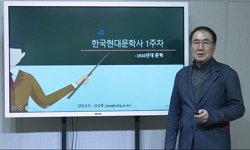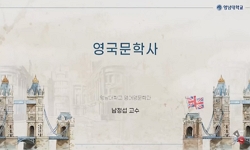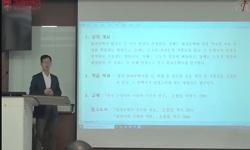In most literary histories, ‘the Korean Language Society affair(1942)’ is the beginning of the Dark Period of the Japanese Imperialism. This is because the conditions for the reproduction of the imaginary world through the national language of Han...
http://chineseinput.net/에서 pinyin(병음)방식으로 중국어를 변환할 수 있습니다.
변환된 중국어를 복사하여 사용하시면 됩니다.
- 中文 을 입력하시려면 zhongwen을 입력하시고 space를누르시면됩니다.
- 北京 을 입력하시려면 beijing을 입력하시고 space를 누르시면 됩니다.
https://www.riss.kr/link?id=A108766573
-
저자
신동옥 (한양대학교)
- 발행기관
- 학술지명
- 권호사항
-
발행연도
2023
-
작성언어
Korean
-
주제어
Dark Period of Japanese Imperialism ; History of Literature ; Traceability ; Conversion ; National Literature ; Thick Description ; Yi Yuk-sa ; Yoon Dong-ju ; Jeong Ji-yong ; Baek Seok ; 암흑기 ; 문학사 ; 소급성 ; 전향 ; 국민문학 ; 중층기술 ; 이육사 ; 윤동주 ; 정지용 ; 백석
-
등재정보
KCI등재
-
자료형태
학술저널
- 발행기관 URL
-
수록면
145-184(40쪽)
- 제공처
-
0
상세조회 -
0
다운로드
부가정보
다국어 초록 (Multilingual Abstract)
In most literary histories, ‘the Korean Language Society affair(1942)’ is the beginning of the Dark Period of the Japanese Imperialism. This is because the conditions for the reproduction of the imaginary world through the national language of Hangul were closed from the possibility level. The literary history of the Dark Period is written as a binary opposition of cooperation and resistance, or described under the exclamation mark. This way of looking at literary history during the Japanese occupation is based on the logic of retroactive meaning. It is a firmly present perspective, with retrospective insights based on the apparent finality of the future event of the Liberation. Based on the desire to reconstruct the final state that Korean literature would have achieved in the absence of Japanese domination, it is important to note that literary history is necessarily a thin description of events. In the first place, the rhetoric of the Dark Period carries the perspective of colonial empires such as Germany and Japan. The rhetoric of the Dark Period comes from the perspective of colonial empires like Germany and Japan. For the colonizer, it was a time of foreclosure; for the colonized, it was a time of repression. By naming it the Dark Period, the colonizer returns to the colonized the signifiers it has repressed. The origins of the Dark Period can be traced back to the Manchu Revolt. The Manchurian Incident is a symbolic event that marked the outbreak of ‘the Greater East Asia[Daitoa]’ ideology. The 15-year war period from 1931 to Japan’s defeat in 1945 can also be defined as the Dark Period. This is because the entire process of visualizing the “one” that had been forcibly merged into the “greater one” order of the Greater East Asia is a metaphor for the Dark Period. The fascistic coherence of the empire is rescued from the internal difference of ‘Joseon’, ‘the absolute denial of Joseon’. The idea of nation, lost in the first place, is renamed in accordance with the ethical call for the realization of the nation-state. The Korean language and Korean literature become objects of erasure and preservation at the same time. National literature is imperial literature, and like the logic of ‘Daitoa’, the moment it is uttered, the logic of conversion is at work. However, this is not possible. The colonized experience modernity as a lack of modernity. The nation, too, is incarnated in the absolute negation of the loss of the nation. It should be noted that literary history can be interlaced through the process of thick describing the experience of colonization with the victim as the subject.
동일학술지(권/호) 다른 논문
-
챗GPT 담화를 통한 시어 고찰의 실제와 활용방안 -김수영의 시어 ‘설움’의 의미 해석을 중심으로-
- 우리어문학회
- 김웅기
- 2023
- KCI등재
-
- 우리어문학회
- 이유정
- 2023
- KCI등재
-
- 우리어문학회
- 조효주
- 2023
- KCI등재
-
한국 걸그룹 노랫말에 나타난 여성 화자의주체성 변화에 대한 언어학적 탐색
- 우리어문학회
- 남신혜
- 2023
- KCI등재





 KISS
KISS






